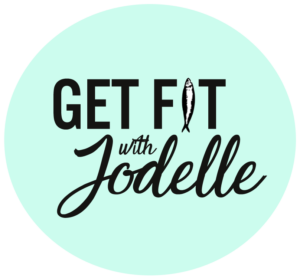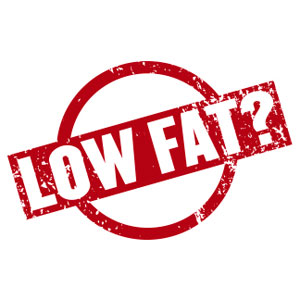Should I Eat a Low Fat Diet?
The 80s called and they want their low-fat dieting back. I’m okay with high waisted jeans, and big earrings making a comeback, but let’s leave the low fat movement in the past where it belongs.
Butter, bacon, and red meat are fervently showing up in the shopping carts of many more people. The science and research is out about why saturated fat is actually good for you and what’s more is it’s being adhered to.
And not a moment too soon since Insulin Resistance and Blood sugar handling issues are currently an epidemic.
So what is it about low fat diet that corresponds with cells that no longer respond to insulin?
Simple. If they eliminate the fat from a “food-stuff”- they must put something back in its place to maintain the taste and the texture. And most often, that something is SUGAR.
“Snack-wells” cookies are a good example of this. The manufacturers wanted to make a cookie that would be all the rage during the low fat movement, so they replaced the fat in the cookie with many forms of sugar to hold it together. These shiny, firm, brown things were a staple in my house growing up. My mother was convinced that we could eat all we wanted of them and not get fat, since the box read “fat-free”. Yet I’m convinced that the fat-free and low fat “food stuffs” in my home growing up was just one of the reasons behind the blood sugar handling issues within all of my immediate family. I recall ample mood swings, anger flare-ups for no reason, alcohol and drug abuse, poor sleep, and the need to eat every 90 minutes as issues my brother, father, mother and myself dealt with on a daily basis.
Fats are marvelous, restorative macronutrients to our bodies. Fat is slow digesting, creates satiety after a meal, and builds strong cell membranes to receive the signal for insulin (an important hormone) to bring in glucose (blood sugar) into the cell for energy. Sugar on the other hand is quick digesting, initiates cravings for more of the same, and damages a cell via glycation and inflammation (think of a charred piece of meat that is hard as a rock to cut into) preventing the uptake of glucose. Those on low fat diets will tend to reach for foods that are higher in sugar and carbohydrates in order to satisfy hunger and supply needed calories, yet will find that appetite is rarely satisfied and eating becomes more frequent in response to crashes in energy. A higher carbohydrate intake requires more insulin to be released. Even the everyday breakfast containing a low fat yogurt and granola could create insulin and blood sugar handling issues. Granola is high in carbohydrates which quickly convert to sugar. The low fat yogurt also usually contains additional sugar. These two in combination cause the blood sugar to sky rocket, thereby, insulin is released in high amounts to get the glucose out of the blood and into the cells.
Sugar once in a while is one thing, but that daily high sugar granola breakfast, or steel cut oats with honey, or a bagel with jelly, a Twinkie, or chocolate milk, or even large amounts of fruit can cause an a chronic output of the fat-storage hormone insulin. Like the boy who cried “wolf”, the chronic outcry of insulin and the inflammatory response of a high sugar diet causes the cells to become insulin resistant. What does this mean for the individual? Energy is no longer getting into the cell, the cells are no longer putting out energy, the individual gets more and more fatigued, and the cell sends the signal for more sugar. Insulin resistance is only the beginning, for it is a stepping stone on a dangerous path towards Diabetes.
Living on a low fat diet isn’t really living at all. Since we are made of trillions of cells, and each cell makes up organs, tissues, systems and essentially YOU, it makes sense that we should make sure we are consuming adequate fats, manufacturing healthy cell membranes in order to keep all systems working together in harmony. So bring back your Keds, your fanny packs, and even the “Flock of Seagulls” hair style you had a prom. But leave the Snack-wells cookies and reduced-fat peanut butter powder on the shelf.




Leave a Reply
Want to join the discussion?Feel free to contribute!